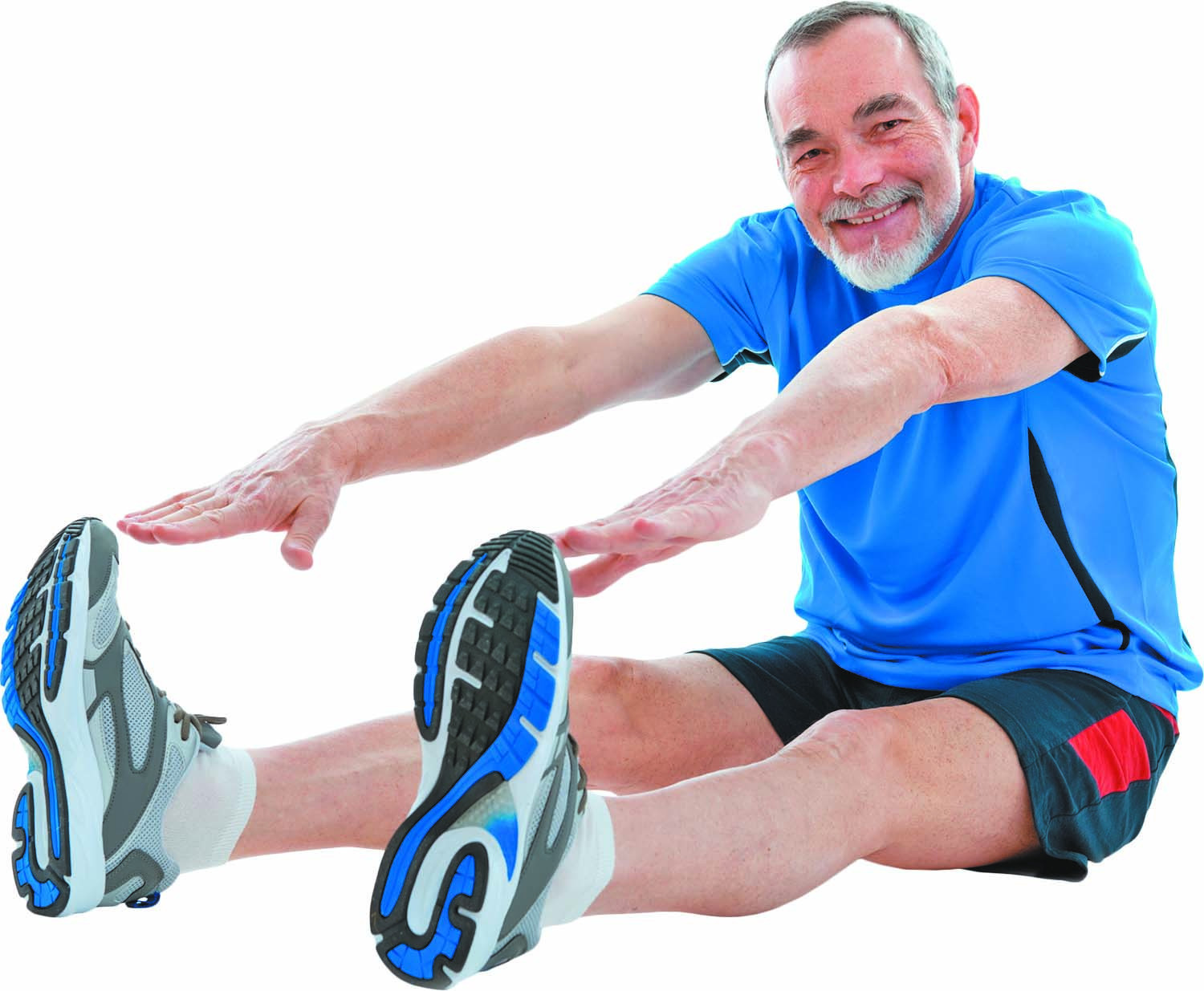
Counting steps is good — is combining steps and heart rate better?

Appendix pain: Could it be appendicitis?

Can saw palmetto treat an enlarged prostate?

How does Ozempic work? Understanding GLP-1s for diabetes, weight loss, and beyond

Zinc: What it does for the body, and the best food sources

Respiratory health harms often follow flooding: Taking these steps can help

Tips to leverage neuroplasticity to maintain cognitive fitness as you age

Can white noise really help you sleep better?

Celiac disease: Exploring four myths

What is prostatitis and how is it treated?
Exercise & Fitness Archive
Articles
Can I do anything to prevent urinary incontinence?
Ask the doctors
Q. I'm hoping to prevent urinary incontinence. Is there anything I can do?
A. Nearly half of all women experience some type of urinary incontinence during the course of their lives. It may not be possible to prevent all of these cases, which can be caused by pregnancy, childbirth, or hormonal shifts that occur around the time of menopause. Here are some strategies that may help to reduce your risk.
Can I outwalk breast cancer?
Ask the doctors
Q. I've heard that walking could reduce my risk of breast cancer. Is this true?
A. Yes, it's true. Walking is not only a great form of exercise to help keep your heart healthy, it could potentially reduce your risk of breast cancer. One 2013 study, published in Cancer Epidemiology, Biomarkers & Prevention, found that women who walked seven hours a week — an hour a day on average — had a 14% lower chance of getting breast cancer when compared with women who walked three hours a week or less. The benefit was seen even in women who were at higher risk for breast cancer, including those who were overweight or who were taking hormone therapy. It's not clear how walking helps, but experts speculate that physical activity might help keep the body's levels of estrogen and insulin in check. Both of these hormones can fuel breast cancer, so regulating them more effectively could reduce your risk.
Lifestyle changes are important for managing atrial fibrillation
Many lifestyle factors can influence the development of atrial fibrillation, and doctors now better understand the importance of these factors in treating afib. Those who are at risk of developing afib can take action to improve their health, and in some cases they may be able to reduce their symptoms.
Youth sports during COVID-19: What parents need to know and do
Playing youth sports is a great way for children to be active and learn important socialization skills, but the risks of COVID-19 mean parents with children who participate in sports must consider a number of factors when deciding whether to play.
Exercise 101: Don't skip the warm-up or cool-down
You might be eager to leap into your exercise routine and get on with the day — but don't just dive in. Starting a workout with "cold" muscles can lead to injury. It's important to start each workout with a warm-up and end with a cool-down — and that goes for true beginners, seasoned pros, and everyone in between.
Warm-up
Warming up pumps nutrient-rich, oxygenated blood to your muscles as it speeds up your heart rate and breathing. A good warm-up should last five to 10 minutes and work all major muscle groups. For best results, start slowly, then pick up the pace. Many warm-up routines focus on cardio and range-of-motion exercises, such as jumping jacks and lunges. If you prefer, you can do a simpler warm-up by walking in place while gently swinging your arms, or even dancing to a few songs.
Avoiding atrial fibrillation
How maintaining a healthy weight and other lifestyle habits can help prevent this common heart rhythm disorder.
During a bout of atrial fibrillation, your heart may beat so rapidly, it may feel as though it's going to explode out of your chest. Commonly known as afib, this heart rhythm problem can leave you breathless and lightheaded—or cause no symptoms at all. About 9% of people ages 65 and older have afib, which raises the risk of stroke and other heart-related problems. But there are ways to lower your odds of developing afib—or to reduce its impact if you already have the condition.
Lessen your load
By far, the most important step you can take is to attain and stay at a healthy weight. "We have good evidence from multiple studies showing that people who are overweight have a higher risk of afib than people who are at a healthy weight," says Harvard professor of medicine Dr. Christine Albert, former director of the Center for Arrhythmia Prevention at Brigham and Women's Hospital. And the more you weigh, the higher your risk: people who are overweight have a 20% to 25% higher risk, whereas those who are obese (a body mass index, or BMI, of 30 or higher) have a 60% higher risk.
Exercising to relax
How does exercise reduce stress? Surprising answers to this question and more.
How does exercise reduce stress, and can exercise really be relaxing?
Rest and relaxation. It's such a common expression that it has become a cliche. And although rest really can be relaxing, the pat phrase causes many men to overlook the fact that exercise can also be relaxing. It's true for most forms of physical activity as well as for specific relaxation exercises.
Boning up on osteoporosis
Men need to manage their bone health as much as women do.
Most people think of osteoporosis as a women-only health problem, but older men also need protection from this bone-weakening disease.
About one in four men older than 50 will break a bone because of osteoporosis during his lifetime, according to the National Osteoporosis Foundation. And research has found that compared with women, older men are more likely to die following a fracture related to osteoporosis.
A plan for easy stretching
Stretching becomes crucial as you age. Here is a quick routine that addresses the major tight spots.
Stretching is much like flossing. You know it's good for your health, but for whatever reason, you may not always make time for it.
"Most people know they need to stretch more, but find it burdensome or are not sure what to do," says Urvashi Chogle, a physical therapist at Harvard-affiliated Spaulding Rehabilitation Network.

Counting steps is good — is combining steps and heart rate better?

Appendix pain: Could it be appendicitis?

Can saw palmetto treat an enlarged prostate?

How does Ozempic work? Understanding GLP-1s for diabetes, weight loss, and beyond

Zinc: What it does for the body, and the best food sources

Respiratory health harms often follow flooding: Taking these steps can help

Tips to leverage neuroplasticity to maintain cognitive fitness as you age

Can white noise really help you sleep better?

Celiac disease: Exploring four myths

What is prostatitis and how is it treated?
Free Healthbeat Signup
Get the latest in health news delivered to your inbox!
Sign Up











